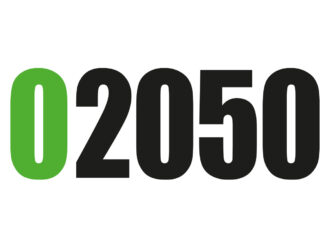Leanne Clements is campaign manager for red line voting at the Association of Member Nominated Trustees (AMNT)
Trustees have far more regulatory responsibilities regarding ESG (including climate change) and stewardship than ever before. Pensions minister Guy Opperman has been working hard to ensure that trustees take these issues seriously and are publicly accountable for their ESG and stewardship activities. Since October, trustees have been required to publish an annual implementation statement which sets out how, and the extent to which, their policy in relation to voting rights and engagement activities has been followed. In addition, they must describe how they have cast their votes during the year.
In principle, we believe this accountability is absolutely right. We are, afterall, responsible for managing other people’s pension money. However, in practice, the new implementation statements have opened a Pandora’s Box on the inefficiencies within the fund management industry regarding how they collect voting and engagement data for their clients, and – perhaps most importantly–on how under-resourced their stewardship function is.
Before October, a typical fund manager’s stewardship resource would be linked to overseeing their voting (which would be significantly outsourced to a proxy adviser) and engagement activities, providing either quarterly and/or annual disclosure of how their votes were cast (which again would be predominantly outsourced), and at a minimum, annual reporting on their stewardship activities across all their funds (or “firm-level reporting”).
There is a theme running through all these activities – the resourcing is almost completely dedicated to firm-level, and not fund-level activity. In other words, the reports lump the fund management company’s entire equity holdings all together instead of reporting on the holdings of an individual fund. Some of the firm-level information may be relevant to clients and their funds, but much of it will not. It is an important distinction.
Why would a trustee, concerned about how their manager was over-seeing ESG risks to their portfolio, want to read case studies of engagement on stocks they do not own, or work through thousands of votes to match them against the companies in their fund? Why should multiple trustee investors have to do this, rather than have their manager do it once? As a result of the regulatory requirement, in Autumn 2020, trustees en masse were requesting fund-specific (not firm-wide) voting and engagement data from their fund managers.
Based on a recent study by Dalriata Trustees and Minerva Analytics 1, some fund managers struggled to cope with the influx of bespoke client requests. As a result, trustees struggled to get the information they needed in order to fulfill their own regulatory obligations. This problem cannot simply be framed as insufficient IT or back-office accounting systems which failed to respond to the entirely predictable and widely trailed client requests (although this did play a key role).
There are much bigger problems to unveil here. This issue seriously calls into question whether fund managers have recognised the increased regulatory responsibilities that their clients face and are future proofing their stewardship function to accommodate this new reality. The winds of change are blowing – and trustees will have to better defend their stewardship approach in future, and no longer simply state: “We delegate stewardship responsibilities to our fund managers” with no scrutiny. This means fund managers may have to cater more to clients priorities than ever before.
How will the fund management industry respond? Some fund managers have levelled criticism at the idea of supporting bespoke client data requests on – for example – ESG issues that are important to them. But this is not a reflection of how it would work in practice. What we are talking about here is much less “bespoke” than the fund management industry claims it might be.
Trustees will have overlapping ESG priorities – for example, climate, diversity – and fund managers should be able to readily run off thematic reports on the topics trustees request. For a fund manager with clients that have prioritised climate change, the same voting and engagement information would be asked for, and the same questions to enable scrutiny of their approach to climate change and stewardship would need to be answered, and so on.
We must find ways as an industry to work together to firstly, accept the new responsibilities that trustees face on ESG and stewardship, and secondly, find ways to streamline the process so that trustees get the information on the ESG priorities that matter to them and their members – but at the same time, does not overload fund managers unnecessarily.
I am convinced a middle ground can be reached here, as illustrated above. We must all accept that the status quo arrangements of firm level reporting alone are no longer tenable. My wish is that we can all work together to develop solutions to these challenges. We should remember that all these regulatory responsibilities on ESG and stewardship for trustees are good news for the responsible investment industry. Increased client demand in this area is what the fund management industry should be supporting.
1) “Unacceptable”: Asset managers leave pension funds in the dark (funds-europe.com)




